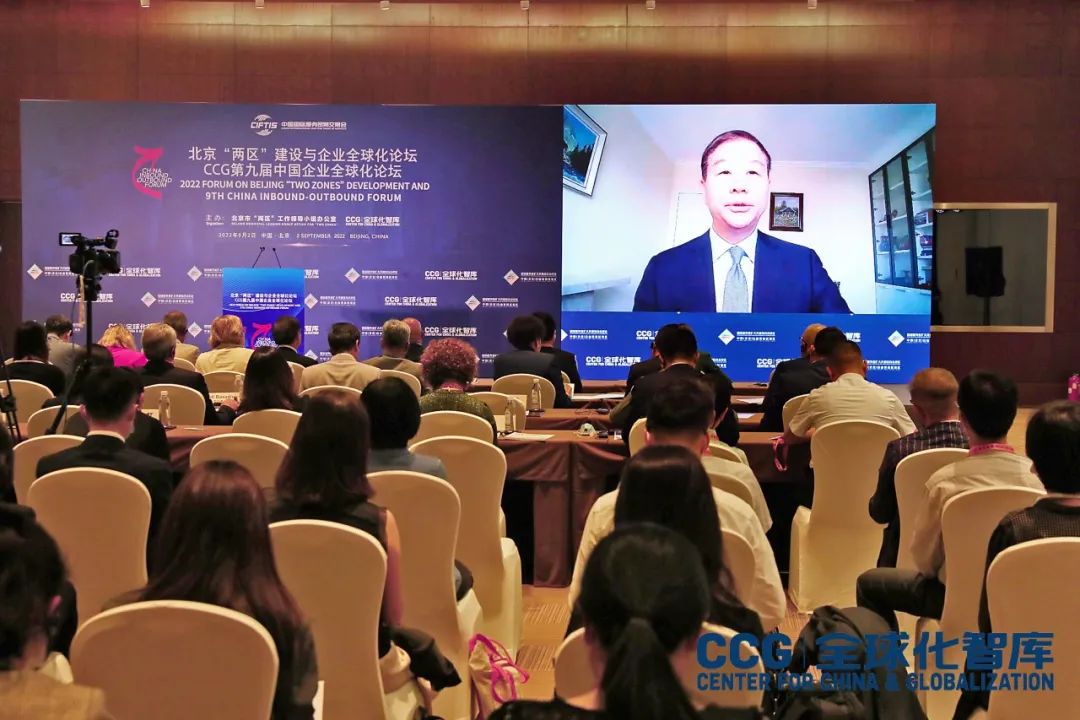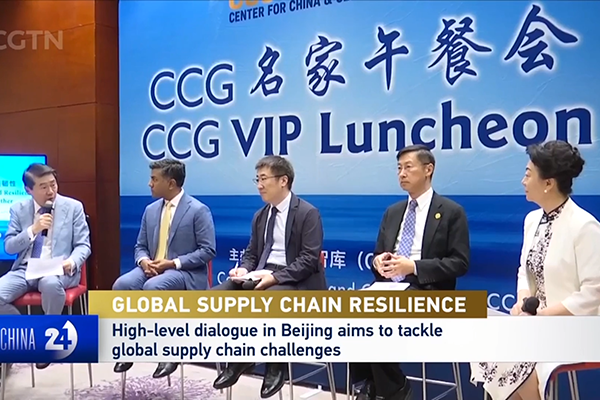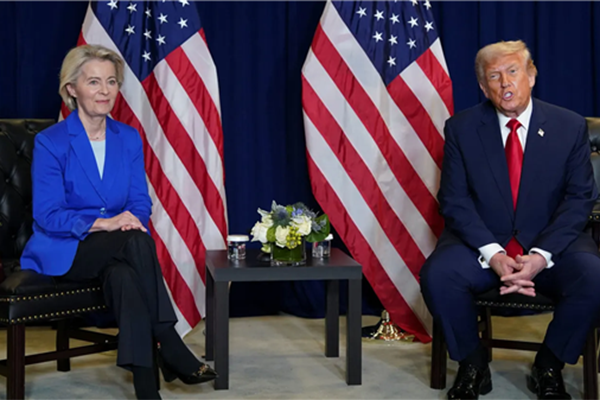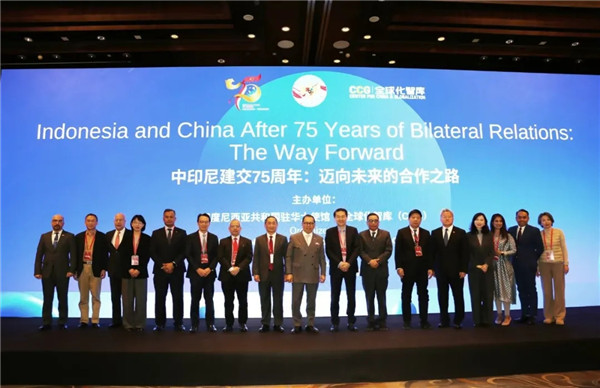【Global Times】A global economic crisis like 2008 is looming
September 02 , 2022 Yi Xiaozhun gives a keynote speech at the 2022 Forum for Beijing “Two Zones” Development and 9th China Inbound-Outbound Forum on Friday.
Yi Xiaozhun gives a keynote speech at the 2022 Forum for Beijing “Two Zones” Development and 9th China Inbound-Outbound Forum on Friday.
The global economy is at risk of stagflation with high rates of inflation, debt and interest rates at the same time as low growth. If the Russia-Ukraine conflict is prolonged, it will definitely further aggravate global shortages of energy and food, which will trigger a global economic crisis on a scale similar to that seen in 2008, former World Trade Organization (WTO) deputy director-general and former vice minister of commerce Yi Xiaozhun said on Friday.
Yi made the remarks at the 2022 Forum for Beijing “Two Zones” Development and the 9th China Inbound-Outbound Forum, which was cohosted by the Beijing Municipal Leading Group Office for “Two Zones” and the Center for China and Globalization (CCG) think tank.
Yi said that global economic governance is facing multiple challenges amid multiple crises. It is likely that a financial tsunami like the one in 2008 will be repeated on a global scale. However, the world seems unprepared for the crisis that many economists are predicting.
“While the 2008 financial crisis was ferocious and extremely destructive, it was lucky that the major economies at that time showed the political will for cooperation, and urgently established the G20 cooperation mechanism, leading the International Monetary Fund, the World Bank and the World Trade Organization to conduct multilateral cooperation. This finally curbed the further spread of the financial crisis,” Yi said.
However today, the three Bretton Woods institutions responsible for global economic governance are deeply divided, and the G20, the last line of defense against global economic crisis, is barely functioning, he noted.
Yi mentioned that the World Bank has recently forecast that the world economy could fall by the most in 80 years, with inflation rates above 8 percent in Europe, the US and emerging economies. And the number of hungry and malnourished people in the world is set to increase by 13 million compared with the number of 770 million in 2021.
Yi said that in the current situation, once a financial crisis spreads around the world, countries are likely to adopt beggar-thy-neighbor policies and set up barriers, just as they did during the Great Depression in the 1930s, which will bring disastrous consequences.
He also warned that the multilateral trading system represented by the WTO faces big challenges.
“Trade protectionism measures such as buying domestic goods, industrial chain reshoring and other unspeakable measures which were contemptuous in the past can even be regarded as national policies today. However, trade liberalization, facilitation, global economic integration, non-discriminatory treatment, most-favored-nation treatment clauses and other important WTO cornerstones have been shaken,” he said.
“More and more trade protection measures and unilateral economic sanctions are being introduced under the guise of national security, posing a major challenge to the authority and effectiveness of the WTO. Even the WTO’s dispute settlement system has been paralyzed. The WTO, which is responsible for global trade governance, has been greatly weakened,” Yi said.
The world today has entered a perilous and highly volatile period, Yi said. In addition to economic and trade crises, mankind is also facing crises in terms of global public health, food, energy, debt, refugees and climate change.
He stressed that in the face of these global crises, no country – big or small – can remain immune and unaffected, and no country can cope up with the crises alone. For the common interests of their own countries and mankind, all countries, especially major countries, should abandon the zero-sum Cold War mentality, take the initiative to shoulder their due responsibilities, strengthen multilateral cooperation under the framework of the G20 and other relevant international systems, build more bridges and reconnect the deeply divided and fragmented world.
From Global Times, 2022-9-2






